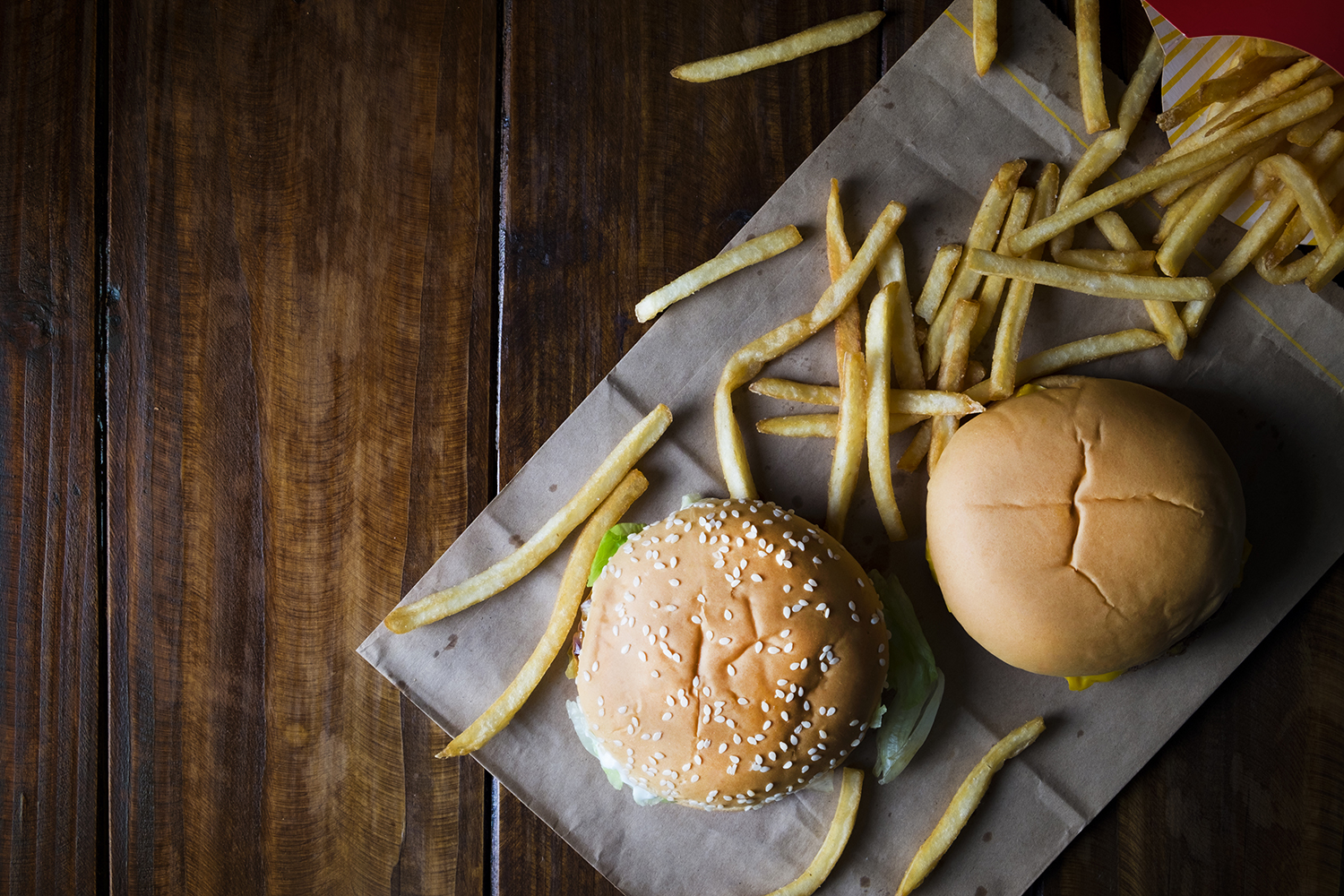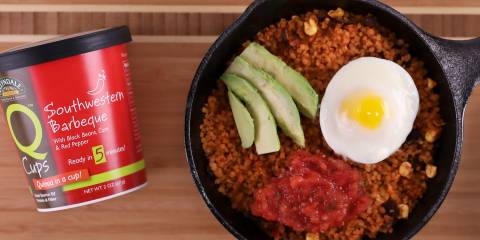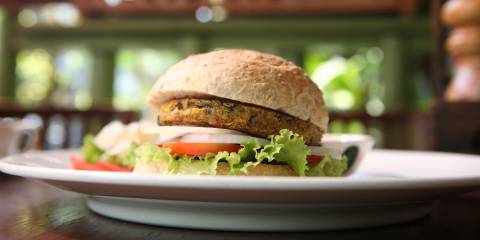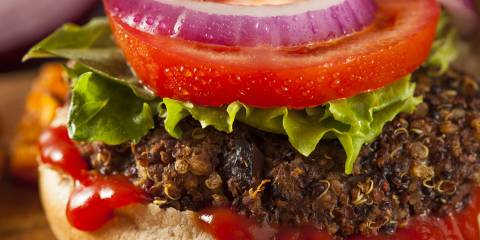Think you know everything about fast food? This list may surprise you! If these fast facts amp you up for eating in, you’ll find some healthy fast-food alternatives at the bottom.
Ten Things You Didn't Know About Fast Food
-
Fast Food Chains Will Play On Your Senses
Many major restaurants take advantage of a customer’s senses with sneaky strategies like “aroma marketing,” which boosts tempting smells of food, and specialized decor, which makes the customer subconsciously think of food with similar colors or physical qualities.
-
If the Medium Meal Looks Large — It Probably Is!
A Duke University study noted that by raising the volume of all meal sizes, fast food companies could charge more and psychologically persuade customers to buy larger meal options. Business Insider reports that, from the 1970s to today, the average order of fries has increased from two to three ounces, while the average cheeseburger grew from 5.9 to 7.3 ounces.
-
International Chains Could Be Contributing Massively to Global Warming
The Environmental Investigation Agency says U.S.-based chains McDonald’s, Starbucks, Subway, and Dunkin Donuts contribute massively to carbon emissions. According to Bloomberg, McDonald's, the world's largest user of beef contributes 53 million metric tons of carbon annually. That is more than the entire country of Norway. The EIA is calling for an agreement that stops these emissions, saying it could prevent 100 billion tons of carbon-dioxide equivalent from entering the air by 2050.
-
Burgers Could Mix Meat From Multiple Cows
In Eric Schlosser's 2001 book, Fast Food Nation, the journalist wrote that the average fast-food burger could contain meat from 12 to 100 cows. In 2014, Daily Mail reported that McDonald’s said it used a mixture of beef from different cows in burgers served at some European restaurants.
-
The Average Burger Could Also Contain... Poop?
In a Consumer Reports study of conventionally raised beef — often processed and distributed nationally by very few major U.S. companies — all 458 pounds of the tested beef contained evidence of "fecal matter contamination.” The study also found that sustainably-fed beef contained less harmful bacteria than conventionally-raised beef.
-
Those Grill Marks Could Be an Illusion
Speculators on sites including Reddit, Snopes, and Food Republic say many “grilled” meats served at major fast-food joints are pre-cooked with additives to create the appearance of grill marks, while also mimicking a grilled flavor.
-
The Average Fast-Food Eater Puts Less Importance On Healthy Menus
A survey reported by Forbes said that while participants ranked fast-food chains based on healthy options, they said that those customers may not necessarily visit the healthier places. Instead, the fast-food fans surveyed favored qualities like fresh taste of food, a menu’s variety of foods, large portion sizes, and the meal’s “portability.”
-
If You Think Sitting Down at a Chain Restaurant Is Safer, Think Again!
A study done at the University of Illinois at Urbana-Champaign said that while the average person gained 58 milligrams (mg) of cholesterol at a sit-down dinner, those who got take-out or fast food saw an average increase of just 10 mg. Researchers collected the data from over 18,000 adults recorded by National Health and Nutrition Examination Surveys. Although this option increases cholesterol at a slower rate, those who eat fast food regularly could still struggle similarly from weight gain and high cholesterol.
-
The Ice In Your Soda Might Contain Toilet-Bowl Bacteria
A study collected ice samples from 10 major fast food restaurant soda machines in Britain — including those of international chains like McDonald’s, Burger King and KFC — and reported that six out of 10 samples had more bacteria than the water found in the chains’ toilets. This followed a middle schooler’s science project where then-12-year old Jasmine Roberts collected toilet-bowl samples, as well as soda samples from self-serve machines and drive-thru windows at five south Florida restaurants. She found that 70% of tested ice was dirtier than its restaurant’s toilet water.
-
Eating In Is Cheaper Than Fast Food
Even with food prices on the rise due to inflation, cooking at home is still less expensive than fast food, as long as you are cooking simple recipes without a lot of fancy ingredients.
Try these healthy recipes if you’re trying to kick the fast food habit.
























